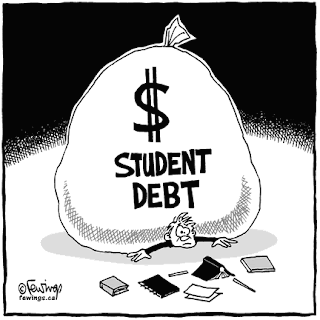Tag Archives: private student loan consolidation
Cedar Ed Lending Shares Pre-College Student Saving Tips for Your Education Fund
The class of 2015 might be in for a surprise this graduation season
Tips to ease the pain of student loan debt
What To Do Before You Refinance Student Loans from a Private Lender
-Names and contact info of all relevant schools
-Detailed personal contact information.
-Social security and driver’s license numbers.
6 Tips On How To Consolidate Private Student Loans
Private Student Loan Consolidation for the Average Student Debt
Undeniably, postsecondary education is one commodity that has become extremely expensive, sailing out of reach of many students. It is estimated that if the tuition and fees for college education were to be paid without any financial aid, the costs would eat up a quarter of the yearly total income of an average household.
 There is no sign on the horizon that the price tag of a college diploma will go down in the next few years. It is thus natural that more students are taking out loans to finance their postsecondary education. Loan skeptics say that private student loans are traps unless you finish school and get a job. Despite the high cost, entirely foregoing your chance to get into college is more detrimental since your chances to get a good salary will be substantially reduced.
There is no sign on the horizon that the price tag of a college diploma will go down in the next few years. It is thus natural that more students are taking out loans to finance their postsecondary education. Loan skeptics say that private student loans are traps unless you finish school and get a job. Despite the high cost, entirely foregoing your chance to get into college is more detrimental since your chances to get a good salary will be substantially reduced.How Much Private Student Loan Debt Do You Have?

Saving Money Consolidating your Student Loans
 Once you have graduated from college, it is now time to face a new world and start paving your own career path. However, it is also important to look back and pay off the private student loan companies who assisted and helped you through college expenses and tuition fees. Paying off several student loans can be very stressful, and it is very hard to budget your finances if you have to pay for them on different dates of the month. A great solution to this problem is via private student loan consolidation. Managing your monthly loan payments into one account can be a great help, and can better enable you to effectively budget your money and even lower your monthly repayment fees.
Once you have graduated from college, it is now time to face a new world and start paving your own career path. However, it is also important to look back and pay off the private student loan companies who assisted and helped you through college expenses and tuition fees. Paying off several student loans can be very stressful, and it is very hard to budget your finances if you have to pay for them on different dates of the month. A great solution to this problem is via private student loan consolidation. Managing your monthly loan payments into one account can be a great help, and can better enable you to effectively budget your money and even lower your monthly repayment fees.
- Scour the internet for a list of companies who offer the most competitive rates and repayment schemes. Make a list and narrow it down to three to four companies, before finally contacting them.
- Once you have contacted these companies, make sure to ask questions. Some of the most important questions that you can ask are: Are your interest rates fixed or variable? Are there any other fees involved? Are there any pre-payment or cancellation penalties? It is best to be clear, so that you won’t be surprised if there are other additional fees you are being charged with.
- Maintain a good credit rating. Borrowers with a good credit rating will of course have lower monthly payment rates, so be sure that you have a good credit rating.
- Lower your monthly repayment fees by extending your repayment period. Some companies offer up to 25 years when it comes to repaying their loans. Choose which scheme is best for you, so that you can plan your finances ahead.
Is Private Loan Consolidation Right For You?
- Better budget management- having one manageable account is better rather than juggling multiple accounts with your two hands. This can also let you schedule your payments easier, rather than having multiple payment periods in one month.
- Ease of mind- having one monthly loan payment to think of is healthier for your state of mind, rather than thinking of multiple payment dues in one month.
- Lower rates- having consolidated your debts, the consolidated rate will be more minimal than what you were paying before, since your loans will be under one interest rate only.
- Fixed interest rates- most often than not, your loan company will give you a fixed interest rate for your consolidated debt, so it will be easier for you to budget your money and prepare for your monthly payment rates.
- Flexible payment terms- you can choose whether to pay for it within 10, 15 or even 25 years. It all depends on which is most convenient for you. However, try to compute if paying for it long term will save you money, rather than paying for it at a shorter amount of time.
When looking for a good private student loan consolidation company, look for one that provides you with all the information you need. Ask your loan specialist if their rates are fixed or variable, if there are any other fees (beware of hidden fees), and their available payment terms. It is possible to easily pay off student loans. All it takes is good money management and strategy.


